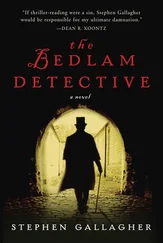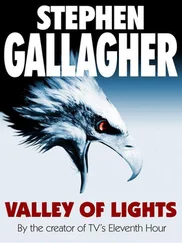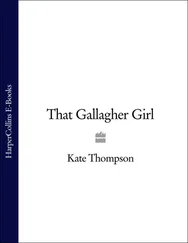I finished the brief by telling the soldiers we didn’t have time for showers and food runs this time. Captain Vrettos wanted us back in Ashuriyah ASAP, due to the report of al-Qaeda’s pending attack.
“Any questions?” I asked.
“Yeah,” Washington said. “What’s this dish do?”
“Need-to-know basis,” I said. I figured the dish had something to do with surveillance drones, but it was just a guess. “And we don’t need to know.”
The soldiers groaned and walked to the armored vehicles. As I went to follow, Snoop jogged out of the outpost. His eyes were wide, and he held his cell away from him like a stinky piece of fruit. I grabbed it from him, but the line was dead.
“What is it?” I asked.
“Not sure,” he said. “Surf’s up, maybe.”
Rana had just called. She was worried about us. A coworker of her husband’s had said to avoid the paved road by the big American base for the next couple of days. Malek hadn’t needed to ask why; he knew this coworker had family in the Sunni insurgency. Her husband had called in sick and was planning on doing so until he knew the road was clear again.
“She risked a lot calling,” Snoop said. “Her husband would be angry if he knew.”
“Right.” It didn’t take much to connect this with what Sergeant Griffin had called with the night before. I told the patrol to stand by. Historically, IEDs were a retaliatory tactic for local al-Qaeda. It made sense.
I radioed battalion and asked when the engineers had last cleared Route Madison.
“One week” was the reply.
“Roger. Got intel that”—this would need to be phrased delicately—“an attack is forthcoming along Route Madison. Recommend the road is shut down until cleared.”
Battalion wasn’t happy — they really wanted us to get that damn satellite dish — but after explaining to two majors and the Big Man that our source was credible, they agreed. Our patrol dropped the Strykers’ ramps and hung out under low gray clouds, playing cards and talking about the best clubs in Hawaii to meet slutty tourists.
I was only half listening when Dominguez asked how my girlfriend was doing.
“Who?” I asked. He had a strange look on his face. I wasn’t sure if he meant Marissa, or if this was his way of asking about the local “slam piece” rumors. Denial would get me nowhere, I knew. But neither would the truth. “Oh. Her,” I said, turning it into a joke. “Honestly, I’m not sure.”
He seemed to consider what that meant before turning back to the debate over clubs.
I walked away from the group to the back of my Stryker. It was open and empty. I lay across a cushioned bench and tucked my helmet under my head so it served as a hard, round pillow. I didn’t know when it’d happened exactly, but I’d become the type of person who preferred resting in the day to resting at night. I was somewhere between sleep and consciousness when the explosion happened.
The soldiers thought a jet had crashed, because of the noise and because of the black fireball to the east. We thought we’d be sent out the gate immediately, but Captain Vrettos radioed and told us to remain on standby until higher figured out what’d happened.
We already knew, though. Two of us did, at least.
“That was the bomb in the road,” Snoop said, crawling into the back of the Stryker to sit next to me. “That was meant for us.”
“Maybe.” I grabbed an orange from a food bin and started peeling the skin into small jagged pieces. When that was done, I split the orange into lumpy slices and swished one around in my mouth. Snoop just watched.
“She saved us,” he finally said.
“Yeah,” I said.
It was true. She had. Information about what had happened drifted down to us, slowly at first, like ticker tape, then faster and faster. The tip had spooked the engineers, too, so they’d sent their best mine-resistant vehicles to patrol Route Madison. They crept along the road at five miles per hour, scanning for piled trash and potholes.
Along the western edge of Checkpoint 38—Sayonara Station — a bomb exploded under the lead vehicle’s front right tire. Forensics later estimated that the IED contained two hundred fifty pounds of homemade explosive, primarily fertilizer and acetone, designed to trigger under the pressure of an armored vehicle. The insurgents had taken advantage of our absence the day prior and had dug, dropped, and repaved without anyone noticing, or caring to.
The twenty-ton vehicle rolled forward like a shot elephant, its outer hull spraying the roadside with large metal chunks. All but one of the ballistic glass windows shattered upon impact. Inside, all five soldiers were hurt, two of them knocked unconscious. The final tally counted four concussions, six broken bones, and a fire extinguisher — induced gash along a neck.
Strykers weren’t built to withstand massive IED attacks. Had it been us on that patrol, like we could have been — like we should have been — it would have been a matter of body parts and pink mist, not casts and splints.
“She saved us,” Snoop kept saying to me, long after he left me alone to tear apart more oranges. “She saved us, she saved us, she saved us.”
The room smelled of rot. I couldn’t determine the source, couldn’t parse it from the other odors — the rain outside, the bouquet of wildflowers in the corner, the foul stink of angry men in sweat-starched uniforms and man-dresses. Still, after another breath, there was no mistaking it. There was rot somewhere.
Twelve of us had gathered in Fat Mukhtar’s sliver of a meeting room. The attendance of the Big Man, Captain Vrettos, and an Iraqi Army major meant I didn’t have to speak; the presence of the mukhtar and a host of other tribal leaders meant I still needed to listen.
“The sheiks demand fasil for all the dead but Azhar,” Snoop said. His voice cracked with angst. “They will not budge from this. They say all the others in the mosque were innocents.”
There’d been drama even before we’d arrived. At the outpost, the Big Man took one look at Snoop’s ski mask and plastic rifle and said our entire company lacked discipline. Captain Vrettos had tried to explain the complexities involved, to no avail. Snoop had saved his job by taking off the mask and setting down the plastic rifle. Time would tell if he’d traded it for his life.
Pallid Arabic brought me back to the meeting. Fat Mukhtar rose from the rug like a false idol, joints cracking, knees popping, the cement wall behind him bracing his back. Once he finished unfurling, he pointed to the far wall. The watercolors of American rivers and forests still hung there, but the mukhtar ’s index finger wagged above them, at three portraits. His finger moved from frame to frame, tracing invisible lines.
“He wants the American officers to look,” Snoop translated. “Those are the men who ruled here before. The one on the left was his great-grandfather, who worked with the Ottomans.” The size of a paperback cover, the hot wax painting displayed a young man with a long, broad nose and a little chin. Soft curls bounced across his head, and his eyes were like two brown suns. “The man in the middle, with the beard? He was the mukhtar ’s grandfather. He worked with the British to overthrow the Ottomans.” This man was middle-aged, the black-and-white photograph capturing an august face and rigid body, clenched fists dangling from arms tucked neatly into a dishdasha . Had he met T. E. Lawrence, I wondered, perhaps on the famous march to Damascus? “The third man? His father, who worked to bring down the last king of Iraq.” Larger than the others, and slightly crooked, this color photograph presented a man more like the heir, round and mustached, dressed in olive fatigues and holding a large-caliber revolver. He possessed a physical poetry his son lacked, a sort of grace fixed in the photograph.
Читать дальше




![Ally Carter - [Gallagher Girls 02 ] - Cross My Heart & Hope To Spy](/books/262178/ally-carter-gallagher-girls-02-thumb.webp)
![Ally Carter - [Gallagher Girls 01] I'd Tell You I Love You But Then I'd Have to Kill You](/books/262179/ally-carter-gallagher-girls-01-i-d-tell-you-i-lo-thumb.webp)






